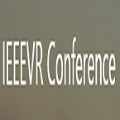Poor social skills in autism spectrum disorder (ASD) are associated with reduced independence in daily life. Current interventions for improving the social skills of individuals with ASD fail to represent the complexity of real-life social settings and situations. Virtual reality (VR) may facilitate social skills training in social environments and situations proximal to real life, however, more research is needed for elucidating aspects such as the acceptability, usability, and user experience of VR systems in ASD. Twenty-five participants with ASD attended a neuropsychological evaluation and three sessions of VR social skills training, incorporating five (5) social scenarios with three difficulty levels for each. Participants reported high acceptability, system usability, and user experience. Significant correlations were observed between performance in social scenarios, self-reports, and executive functions. Working memory and planning ability were significant predictors of functionality level in ASD and the VR system's perceived usability respectively. Yet, performance in social scenarios was the best predictor of usability, acceptability, and functionality level in ASD. Planning ability substantially predicted performance in social scenarios, postulating an implication in social skills. Immersive VR social skills training appears effective in individuals with ASD, yet an error-less approach, which is adaptive to the individual's needs, should be preferred.
翻译:自闭症谱系障碍(ASD)患者的社交技能差会导致他们在日常生活中独立性减弱。目前用于改善ASD患者社交技能的干预方法无法真正代表真实社交环境和情境的复杂性。虚拟现实(VR)可以在社交环境和接近真实生活的情境中促进社交技能训练,但是需要更多的研究来阐明ASD患者对VR系统的可接受性、可用性和用户体验等方面的情况。25名ASD患者接受了神经心理评估和三次VR社交技能培训,包括五个社交场景,每个场景有三个不同难度级别。参与者报告接受性高,系统可用性和用户体验良好。在社交场景、自我报告和执行功能之间观察到显著的相关性。工作记忆和规划能力分别是ASD的功能水平和VR系统知觉可用性的显著预测因子。然而,社交场景中的表现最能预测VR系统的可用性、可接受性和功能水平。规划能力在社交技能方面具有重要作用的影响,呈线性关系的提出。沉浸式VR社交技能培训似乎对ASD患者有效,但应优先选择适应个体需求的无错误方法。



